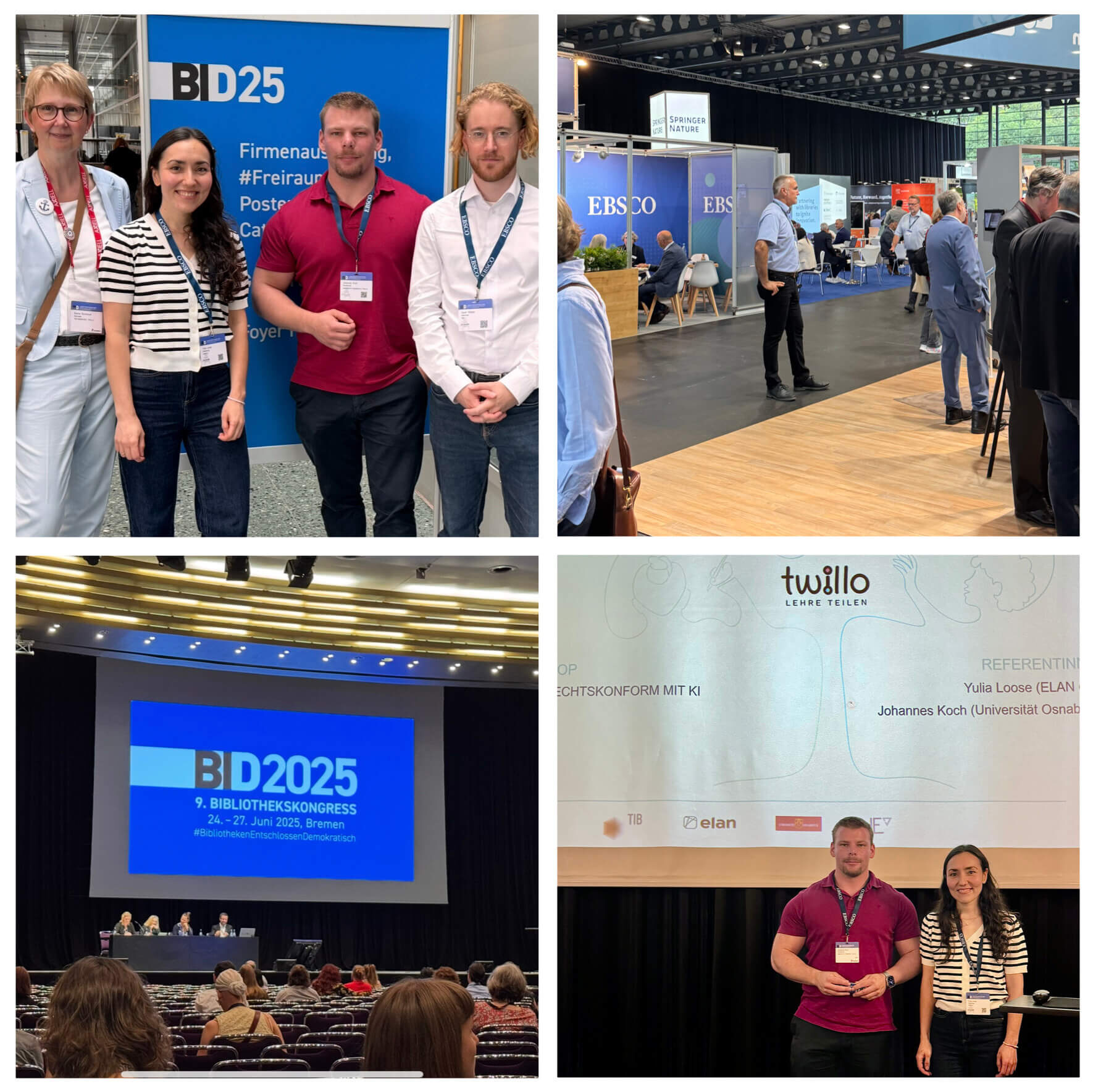
Freiraum25: Thinking about OER infrastructures in a federal context
The first format focused on the development of transnational OER infrastructures. With the twilloHub initiative, twillo is contributing to the development of a common technical and organizational basis for open educational resources in Germany. At #Freiraum25, participants discussed the structural requirements needed to ensure that OER remain visible, usable and findable in the long term — even beyond institutional borders. It quickly became clear that democratic educational spaces not only need open content, but also sustainable infrastructures, clear responsibilities and close networking between stakeholders.
AI as a co-creator for OER — legally compliant and inspiring
The twillo hands-on lab started with a legal impulse: What legal framework conditions apply to the use of generative AI in open university teaching? What needs to be considered with regard to copyright? This was followed by lively group work in which case studies were worked on and discussed together — often controversially, but always constructively. It became particularly clear that the use of AI in teaching is neither purely technical nor purely legal. It is about didactic responsibility, creative design and reflective, responsible practice. Finally, there was a practical insight into concrete application possibilities: How can AI be used to rethink teaching content — for example in the form of simulations, text vignettes or generated visualizations? And one thing became particularly clear:
“Access is not the problem — understanding is.”
At a time when digital resources and AI-generated information are seemingly available in unlimited quantities, the real challenge lies in understanding and categorizing content and thinking about it together. This requires spaces in which knowledge can circulate openly — spaces such as those created by OER. This is precisely the core of our work. The materials for the Hands-On-Lab can be accessed via the following link: https://go.uos.de/twillo
Connections to the congress motto “#LibrariesDecidedDemocratic”
The motto of BiblioCon25 focused on the social responsibility of libraries. Even though the twillo formats emerged from existing work contexts, numerous links to the congress motto became apparent in Bremen.
The hands-on lab focused on enabling the independent, reflective use of digital tools in teaching — a contribution to democratic participation in educational processes. The twilloHub discussion format, on the other hand, made it clear that digital educational infrastructures are not only of a technical nature, but also an expression of social values: openness, accessibility, transparency.
Both events showed how libraries and OER initiatives can work together to create spaces for access, understanding and co-creation.
Conclusion: spaces for exchange, orientation and creative freedom
BiblioCon25 has shown how strong the interest is in open, technology-supported and responsibly designed educational approaches in a pluralistic society. We are taking a lot of ideas with us — and the intensive exchange has strengthened our resolve to continue thinking about OER with new technologies and to actively help shape their structural anchoring in democratic education systems.